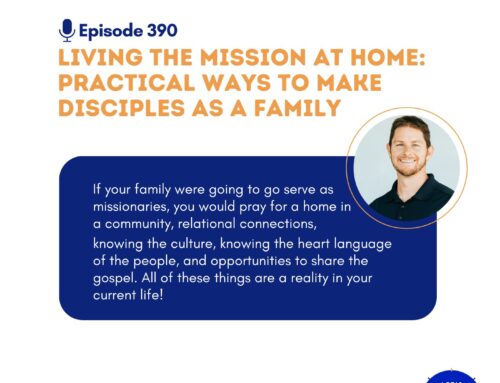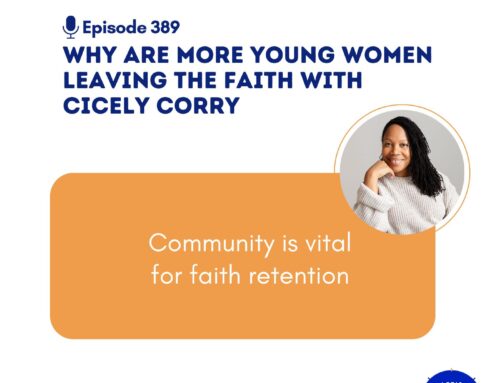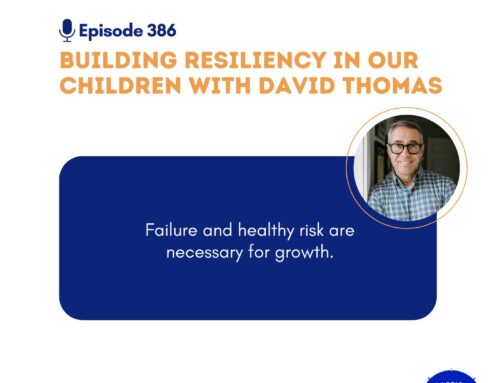Powered by RedCircle
Instilling the concept of service and generosity is one of the most impactful things that we do in the formation of our children’s character. It is something that definitely must be started in the home and not just at church. Steven Argue talks to us about the practical strategies that will help grow a heart of service and generosity in our children to ultimately make it a way of life.
Thanks to our sponsor www.lazybearcabinrental.com. The Lazy Bear Cabin is three bedroom, two bathroom cabin in the beautiful Blue Ridge Mountains of Northwest Georgia. Consider this getaway spot as the perfect socially distanced family or romantic getaway. If you know a family who deserves a special vacation, nominate them and tell their story at www.lazybearcabinrental.com to register for a free 3 day, 2 night getaway.
Show Highlights
Steven Argue serves at Fuller Theological Seminary in a hybrid role as assistant professor of youth, family, and culture and as applied research strategist with the Fuller Youth Institute (FYI). He is the co-author of the book Growing With: Every Parent’s Guide to Helping Teenagers and Young Adults Thrive in Their Faith, Family, and Future.
Creating a culture of service and generosity at home takes practice. It is built by repeating important habits over and over again. The idea of serving others and being generous is a transformative and growing force in our kids’ lives that can really help them discover who they are and begin to help them have a sense of the world as well.
This is important because the world that our kids live in right now is so different from the world that we grew up in. They have a window to the world in a way that we did not have before. They are aware of news of injustices and atrocities committed around the globe and they see it in real time.
Young people end up asking themselves: “What am I supposed to do about that?” This impulse to take action is a good opportunity for us to engage and talk to them about these challenges and what to do – how they can be of service.
An important thing from them to understand is not only what they can do, but more importantly why they should serve. Why is a meaning-making question that will help them have a deeper understanding of service.
Another valuable thing to let your children know is that they may be of service to people around the world on day, but they can also practice service and generosity in their community and even just at home.
A practical way in introduce the concept of service and generosity in your family is to have conversations about it – not necessarily big, serious family meetings – but everyday short conversations like when you are in the car, or before you go to bed, or over a meal. These make the concepts a part of your everyday. These small conversations prepare us for larger conversations.
Teach your children to be generous in their relationships with their classmates and friends. Steven suggests one small but meaningful way to do this is to always think of who else they can invite to a playdate or a party. Stay away from forming cliques and leaving others out. Make your home a safe space where their friends are always welcome.
As parents, talk about the process of serving. Before you go out to volunteer for a soup kitchen or a charity event, discuss what you are doing, why it’s important, and what are the stories behind it. Let your kids reflect on what they feel during their experience of service.
Then, debrief afterwards. Talk about what they found exciting, what was scary, and what they would do differently next time. The idea of service and generosity is then turned into a process that they are reflecting on. It will give your children deeper roots and transformative understanding of what they are doing.
Don’t forget to be generous yourself positive reinforcement when you see your child is being of service in their own ways.
As parents, Steven points out that we are often too quick to look at our kids through the lens of Genesis 3 where we see their sinfulness and everything that they do wrong. But, the narrative of the scripture starts with Genesis 1, which tells us that we are created in God’s image. There is certainly sin that needs to be addressed, but ultimately there are flashes of the Divine in each of us, including our children.
Call out the Genesis 1-ness of your children instead of beating them down with their Genesis 3- ness.
Instead of always calling out their mistakes, bring attention to the times when they do good. But when they do blow it, instead of saying “There you go again. I knew you would do that”, try saying, “I’m really surprised you did that because that’s not how I see you to be.”
Let your kids reflect on what they feel during their experience of service. Share on XResources Mentioned
- Steven’s website: http://www.stevenargue.com/
- Book: Growing With by Kara Powell and Steven Argue
- Book: Sticky Faith by Kara Powell and Chap Clark
- Institute: Fuller Youth Institute
- Previous episode: Sticky Faith in an Anxious World With Kara Powell
If you find this podcast helpful, you can subscribe and click here to find past topics and free resources. Feel free to share with others, as well! If you would like to help support Let’s Parent on Purpose, you can do so by becoming a patron.
I send a weekly email called “Things for Thursday” and it includes things I’ve found helpful related to parenting, marriage, and sometimes just things I find funny! You can sign up for “Things for Thursday” by joining my newsletter on my homepage.
Thank you for your continued support of this podcast. If you have a prayer request or if you have a topic suggestion or question, please contact me at my email.






